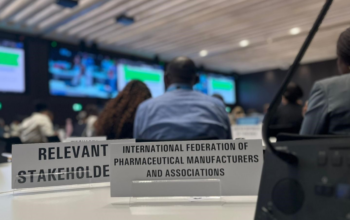Everyone’s Ideas Count
Author
Share
Topics
In this first Global Health Matters entry, I want to address an important and much-discussed topic on the global health agenda: WHO engagement with non-state actors.
In the WHO context, “engagement” can have a variety of meanings and can spur different reactions. It may range from simple dialogue to cooperation, collaboration, formal partnership or even active participation in the decision-making. I believe most people appreciate the outcomes that engagements can yield, despite some legitimate concerns and some skepticism.
It is important to remember that in principle all potential partners are equal and should have an opportunity to engage with the WHO. However, engagement should only happen when the core goals of organizations involved are aligned to contribute positively and tangibly to global health outcomes. Engagement should be based on concrete, measurable terms so it is possible to evaluate the added value of a specific interaction. I also believe that engagement should be possible only when certain fundamental principles are met. Those include transparency and accountability as well as approaches that are evidence-based and patient-centered.
At IFPMA, we represent an industry just as several non-state players have private sector or civil society constituencies. Rather than being something to hide, this should be – must be – clearly understood by all. After all, it is through the involvement of many organizations bringing their own areas of expertise and capabilities that most global health successes are possible. This point was made during the recent WHO Executive Board meeting when Director General Margaret Chan underscored the importance of “international health cooperation, whether stimulated, led, or simply facilitated by WHO” as a key strategy for meeting public health challenges.
The interaction between governments, who ultimately decide on policies, and non-state actors is vital to ensure effective and informed policy-making. In the words of the UN Secretary General Ban Ki Moon, “our times demand a new definition of leadership: global leadership. They demand a new constellation of international cooperation: governments, civil society and the private sector, working together for a collective global good.”
Looking at today’s health challenges such as non-communicable diseases, the increasing burden of mental and neurological disorders, and the threat posed by anti-microbial resistance – to name just a few – we cannot afford not to promote collaborations and partnerships.
With clear rules in place we can continue to achieve important successes like recent outcomes on a framework for pandemic influenza preparedness and on neglected tropical diseases.
At IFPMA we support a framework that is fair and coherent and applies equally to all relevant subjects, and demands disclosure of all interests. This is what I call a mature pluralist and democratic system where organizations are able to interact with all legitimate actors and manage diverse and often diverging interests.
Using the current European Union’s Transparency Register as a model, such declarations could make information about funding, plans, priorities, and governance publicly available and easily accessible. This should then be accompanied by a solid engagement plan that publicly defines the level of engagement with WHO. By doing so, the WHO could continue to bring together the best minds and ideas from all sectors, while maintaining its independence from commercial or any other vested interests.
I very much welcome your opinions and look forward to engaging in dialogue with you.
Author





